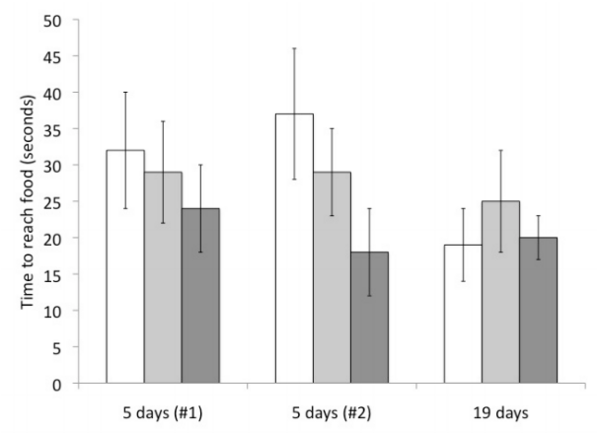The Effects of Ocean Acidification on the food location behavior and Locomotion of Pagurus Longicarpus
(1) Falmouth High School, Falmouth, Massachusetts
https://doi.org/10.59720/13-003
Although the mechanism is unknown, recent studies have indicated that seawater with reduced pH may affect the behavior of marine species. Ocean acidification resulting from increasing amounts of carbon dioxide released into the atmosphere from car exhausts, factories, and other sources may therefore affect a marine animal’s food location ability and locomotion. In this experiment, the effect of seawater at different pHs on the food location behavior and locomotion of the long-clawed hermit crab (Pagurus longicarpus) was assessed. The hermit crabs were exposed for 5 and 19 days to seawater with pH levels predicted to be equivalent to the worldwide average pH in approximately 100 and 150 years (pH 7.85 and 7.75, respectively), as well as to seawater at the worldwide pH found today (approximately pH 8). On average, the hermit crabs traveled significantly faster in tests with food present than in tests with no food available. There was no statistically significant effect of lowered pH water on hermit crabs’ average time to reach a piece of food, their speed, or their path length. Hermit crabs kept in lowered pH water for 5 days did take longer to reach a piece of food than their counterparts kept in untreated seawater, although the differences were not significant. Thus, it cannot be concluded that decreased pH has an effect on hermit crabs’ food location behavior and locomotion. This is not surprising since they tend to inhabit intertidal zones and estuaries where they withstand a wide range of environmental conditions. Further studies, including those with longer treatment durations and a wider range of pHs, are needed to determine if and how ocean acidification will alter hermit crabs’ food location abilities.
This article has been tagged with: